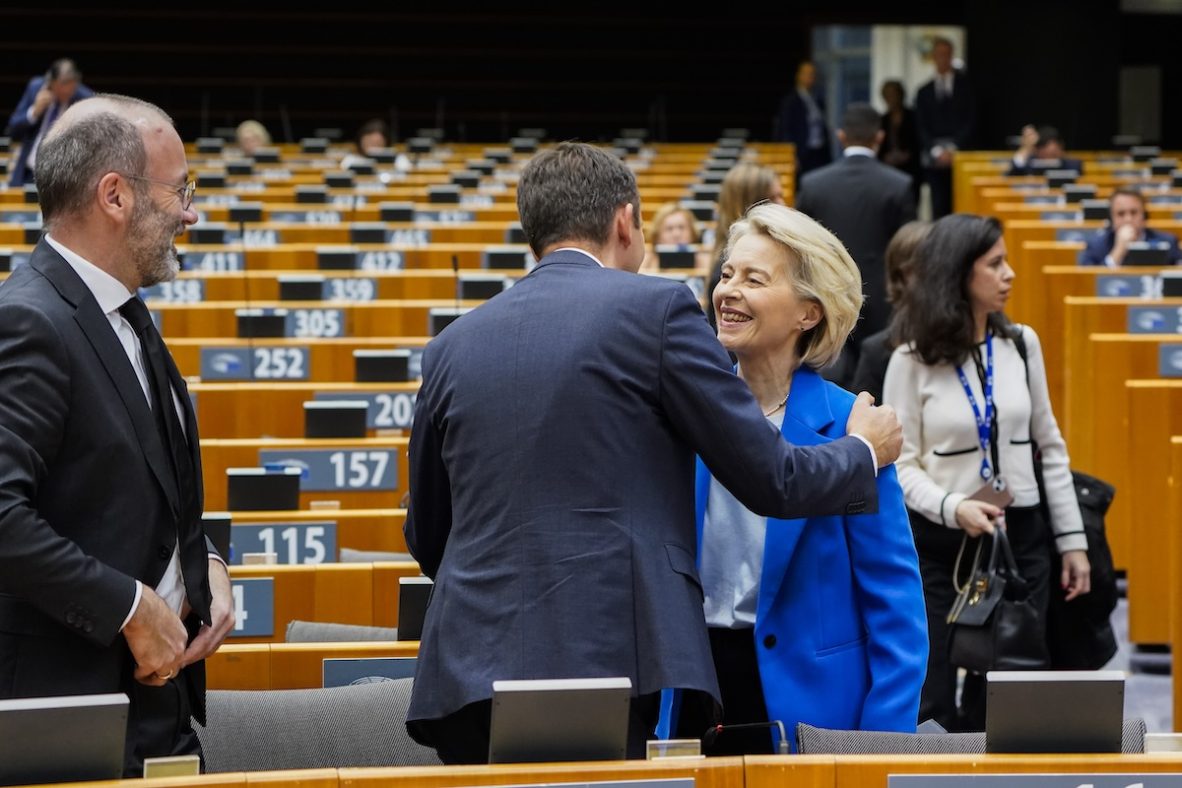'A slap in the face’: EU leaders, industry reel from Trump's tariff shock
Brussels has repeatedly delayed retaliatory action in hopes of reaching a negotiated solution. But now leaders are calling for tough countermeasures to defend European interests.

Donald Trump’s announcement on Saturday of 30% tariffs on EU products has major implications for European economies, triggering a flurry of responses from national leaders and industries.
The tariffs, which are a significant jump from the 10% baseline levy that is currently in place, are due to be effective from 1 August. Whilst the EU had previously indicated that it might be prepared to accept terms similar to those secured by the UK in May, the current “deal” has led stakeholders to reassess their stance.
EU ambassadors will hold an emergency meeting on Sunday afternoon to discuss the response. But even on Saturday, reactions called for unity and stressed the bloc’s trade strength – while urging Brussels to respond firmly to Washington’s move.
The US is the EU’s top trading partner, with goods trade totalling €867 billion in 2024.
Trump’s letter is “impertinent and a slap in the face,” said socialist MEP Bernd Lange, chair of the European Parliament’s trade committee, adding that the EU had been negotiating intensely “for more than three weeks.” He added that EU countermeasures “should come into force as planned on Monday, quickly followed by the second list.”
France shared a “very strong disapproval” of the announcement of 30% tariffs on EU exports, French President Emmanuel Macron said, adding that Brussels should adopt countermeasures if no agreement is reached by 1 August.
“It is more than ever up to the Commission to assert the Union’s determination to defend European interests resolutely,” he added.
Brussels has repeatedly delayed retaliatory action in hopes of reaching a negotiated solution – despite the EU already facing a blanket 10% tariff since April, alongside duties of 50% on steel and aluminium and 25% on cars and car parts.
Spain’s Prime Minister Pedro Sánchez said the EU should use its collective single market strength to achieve a “fair deal”.
Italy’s Prime Minister Giorgia Meloni – one of the few EU leaders to enjoy cordial relations with the Trump administration – said she still trusted the “goodwill of all players” to reach an agreement. “It would make no sense to trigger a trade clash between the two sides of the Atlantic,” she said.
Hungary, expectedly, lashed out at the European Commission for not having secured a deal yet. “EU tariffs on the US should’ve been lowered after Trump took office,” Hungary’s Foreign Minister Peter Szijjarto said.
Industry warns of severe losses
German industry, which accounts for the largest share of EU exports to the US, was quick to react.
“President Trump’s announcement is a wake-up call for industry on both sides of the Atlantic,” said the Federation of German Industries (BDI), in a statement quoted by AFP.
The federation urged Berlin, the European Commission, and the US administration to “very quickly find solutions and avoid an escalation.” Ongoing tariff threats have already driven German exports to the US down to their lowest level since March 2022, according to government data released last week.
The EU’s food and drink sector would also be among the hardest hit by a 30% tariff. Italy’s wine association, UIV, said on Saturday that Trump’s letter had written “the darkest page in relations between the two historic allies.”
The US is the largest export market for EU wines, accounting for 27% of export value and 21% of volume.
If implemented, a 30% duty on wine would amount to an embargo on 80% of Italian wine exports, the group said. “At this point, the fate of us and of hundreds of thousands of jobs is tied to additional time, which will be crucial, because it is unthinkable to place these volumes of wine elsewhere in the short term,” said UIV President Lamberto Frescobaldi.
Alexandra Brzozowski contributed reporting.
(ow)



